
IMF ANNUAL Meetings Update | OCTOBER 10, 2022
In our first daily recap for Monday, October 10, we spotlight the challenges poorer nations face accessing capital to overcome economic crises, tackling climate change. We also cover food insecurity in sub-Saharan Africa, the Asia Pacific's pandemic scarring, how corruption is fueling fragility, and much more.
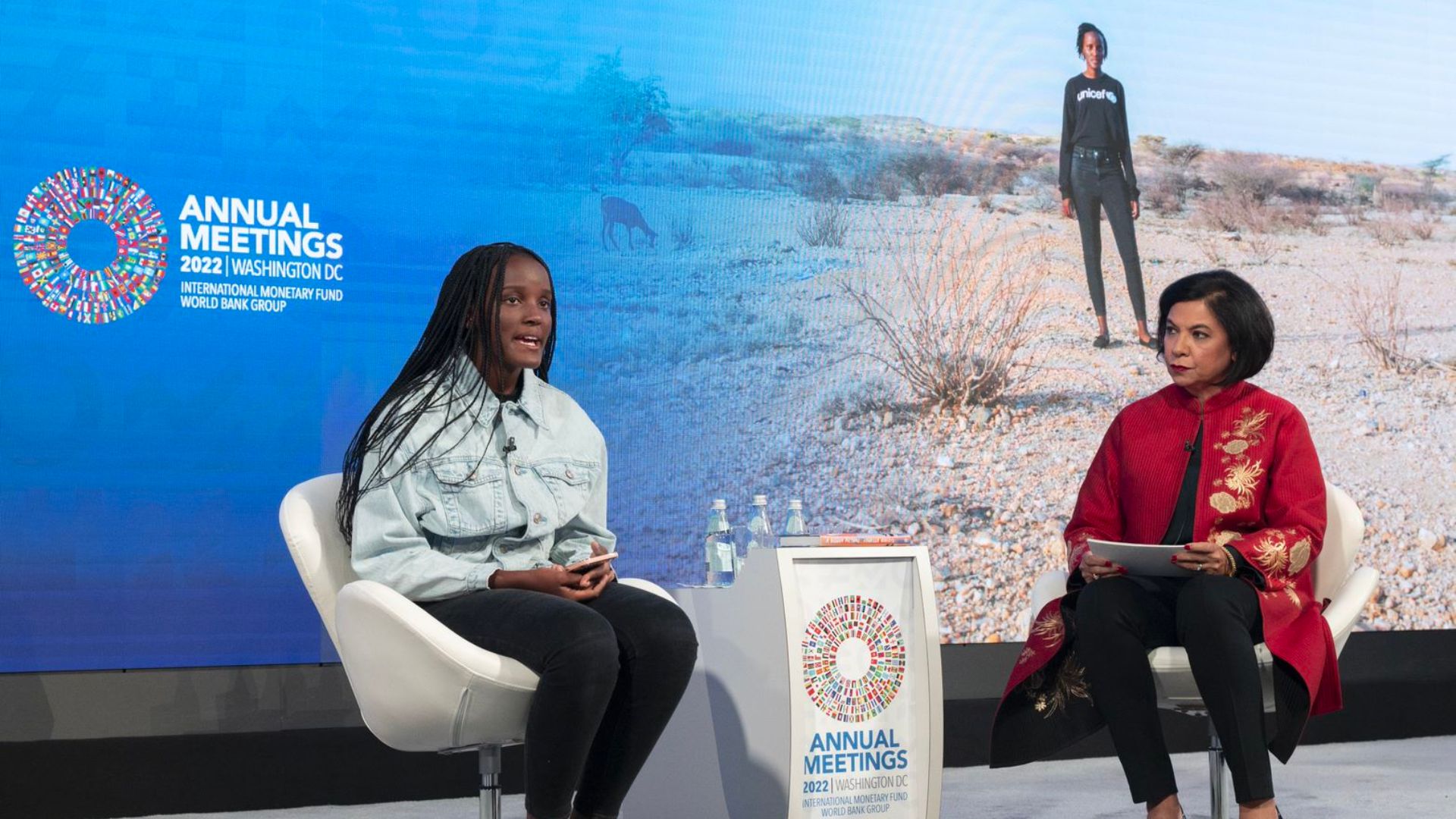
IMF INSPIRED: Rising Up for People and Planet
"One of the horrible realities of the climate crisis is that people paying the price on the frontlines are not the ones who are responsible for it,” climate justice activist Vanessa Nakate said in a conversation about climate justice with IMF Deputy Secretary Sabina Bhatia. Speaking from firsthand experience, Nakate described climate devastation across Africa that is costing livelihoods and lives. “Climate change is about more than statistics,” she said. Nakate called on policymakers at the Annual Meetings and in the run-up to COP-27 to commit urgently to fight the climate crisis, including by ceasing support for new fossil-fuel related projects.
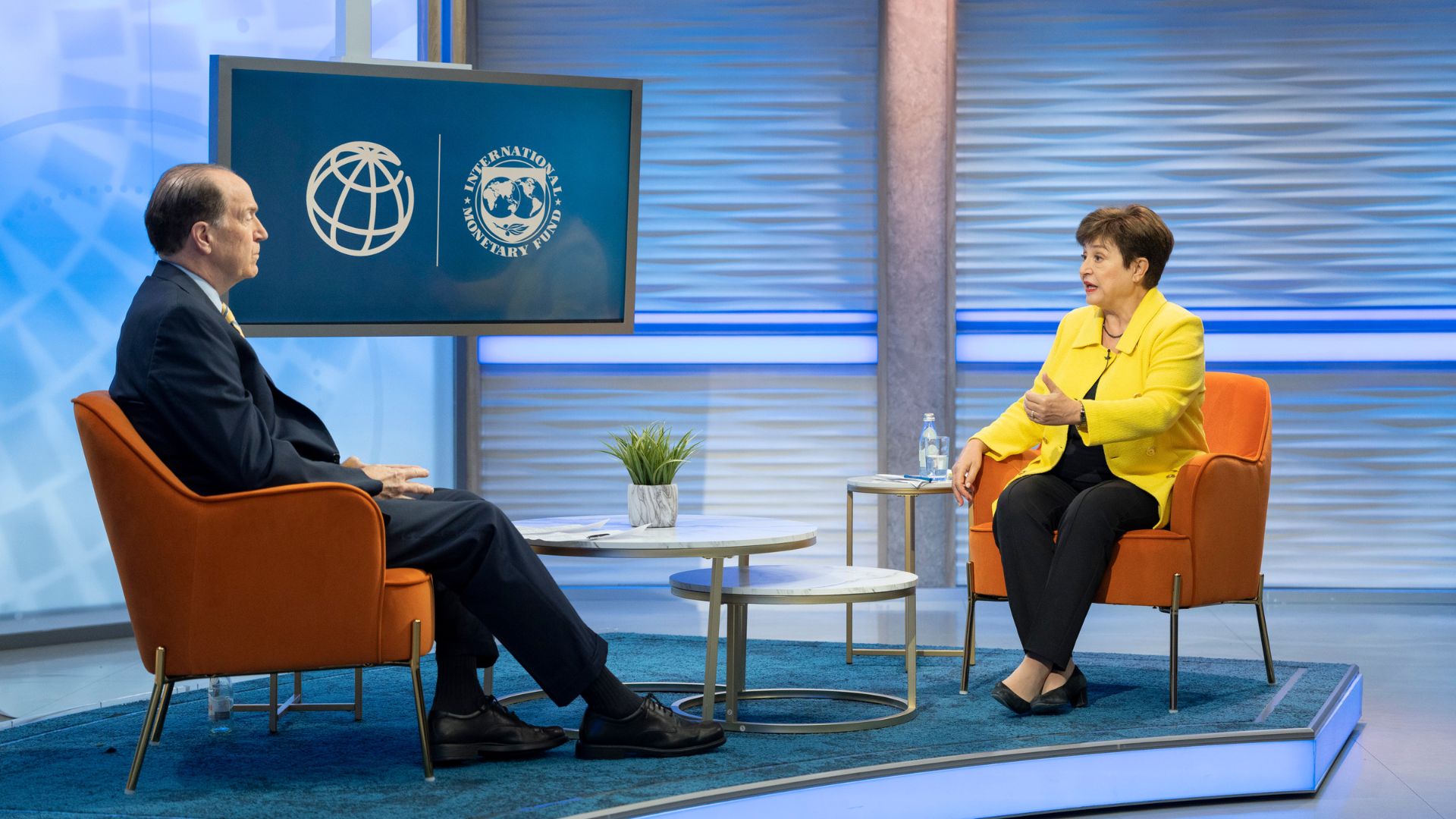
World's Poorest Face Capital Squeeze
From climate change to the cost of living, the world’s poorest countries are suffering the most from the multiple crises confronting the world economy. Yet capital that could lessen the pain is flowing primarily to richer nations. IMF Managing Director Kristalina Georgieva and World Bank President David Malpass discussed how advanced economies are diverting capital from emerging market and developing economies by running larger fiscal deficits and buying only the bonds of advanced economies. Georgieva said that public money alone could not fill the immense financing gap faced by the world’s poorer nations, but it could open a space for private money to build more resilient economies.
Quote of the Day

Let us put aside this lie of fossil fuels as a bridge to wealth for Africa (…) Fossil fuels are a bridge to nowhere.
VANESSA NAKATE, CLIMATE JUSTICE ACTIVIST AND UNICEF GOODWILL AMBASSADOR
READ HER ARTICLE IN F&D
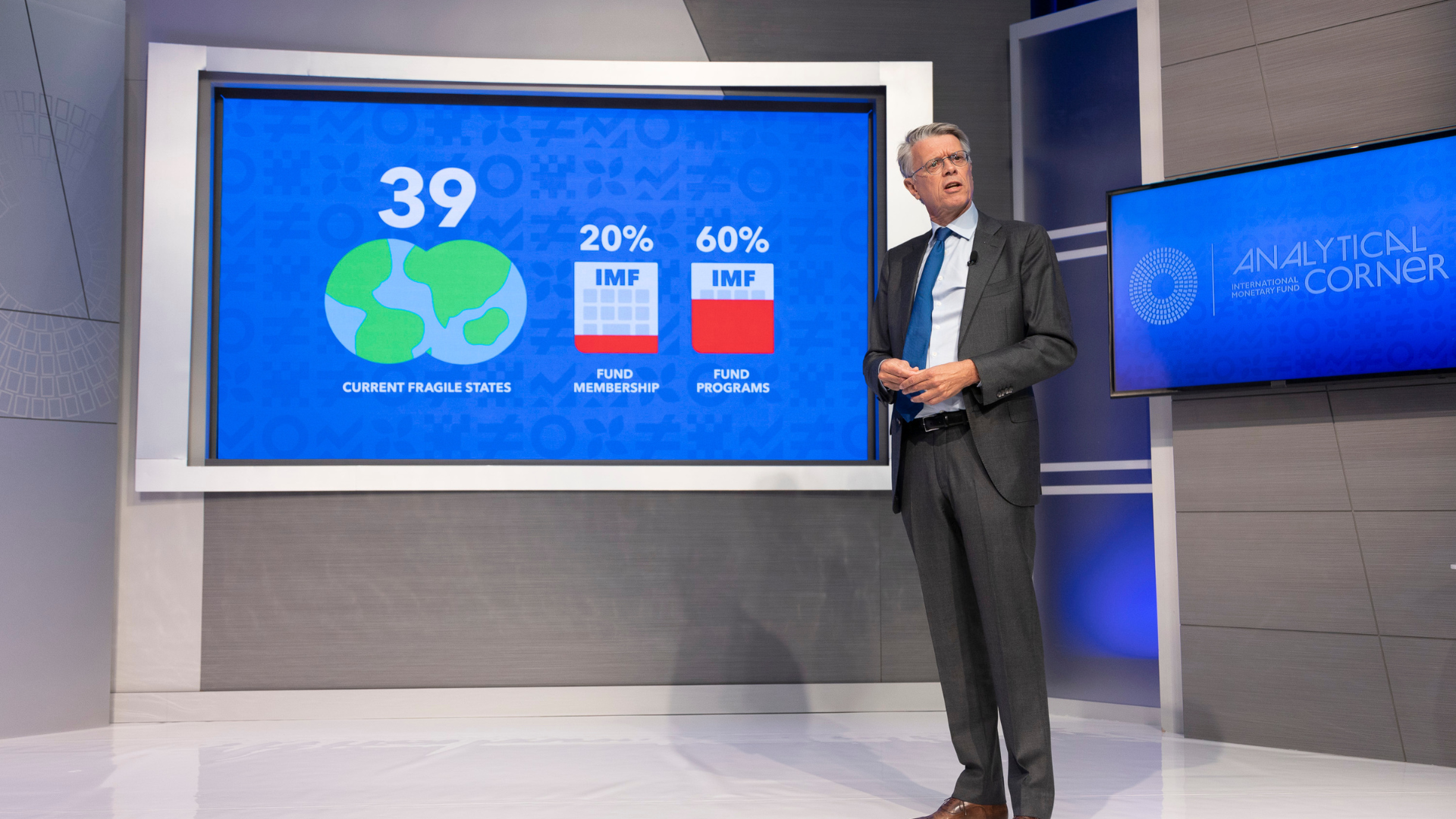
Fragile States and Corruption
In the first Analytical Corner of the meetings, Sebastiaan Pompe of the IMF’s Legal Department presented new findings on fragility and corruption. In part based on actual cases from Fund work, Pompe said that corruption is central to fragility as it affects the core functions of the state, such as the authority to control violence, capacity to deliver basic services, and legitimacy to secure popular consent. Corruption in state functions and sectors of fragile states is interlinked, and so cannot be tackled on an institution-by-institution, or even sector-by-sector basis, he added.
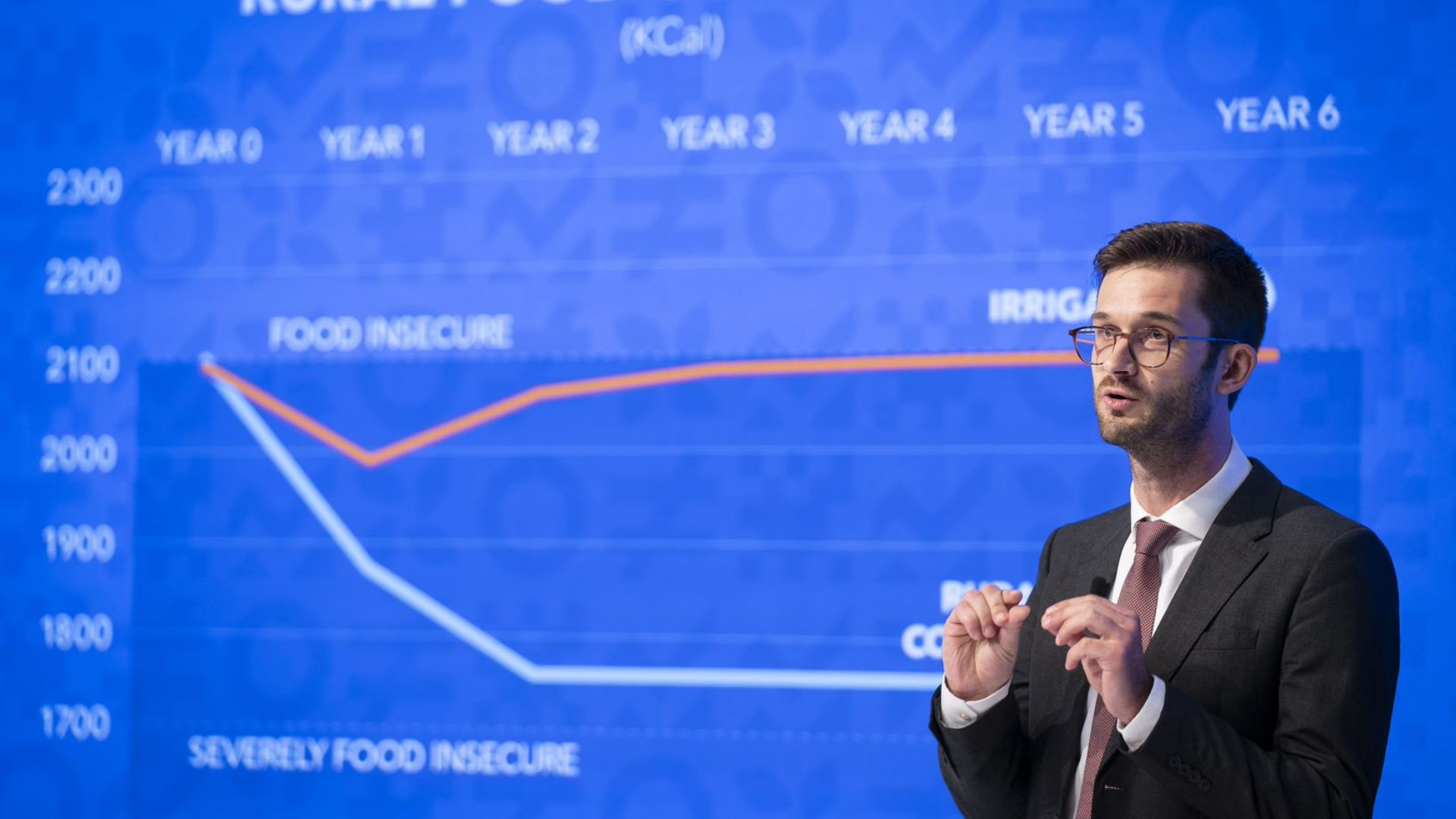
Food Insecurity in Sub-Saharan Africa
Successive shocks caused by the pandemic and Russia’s invasion of Ukraine have driven up food insecurity in sub-Saharan Africa by at least 30% to 123 million in 2022. On top of this, the region faces a rising frequency and intensity of climate-related disasters. In this Analytical Corner, Mai Farid and John Spray outlined key areas that could be most impactful in building resilience to climate change when it comes to food security in sub-Saharan Africa: improving affordable food access through social assistance, promoting greater financial access through digitalization, and increasing regional trade integration.
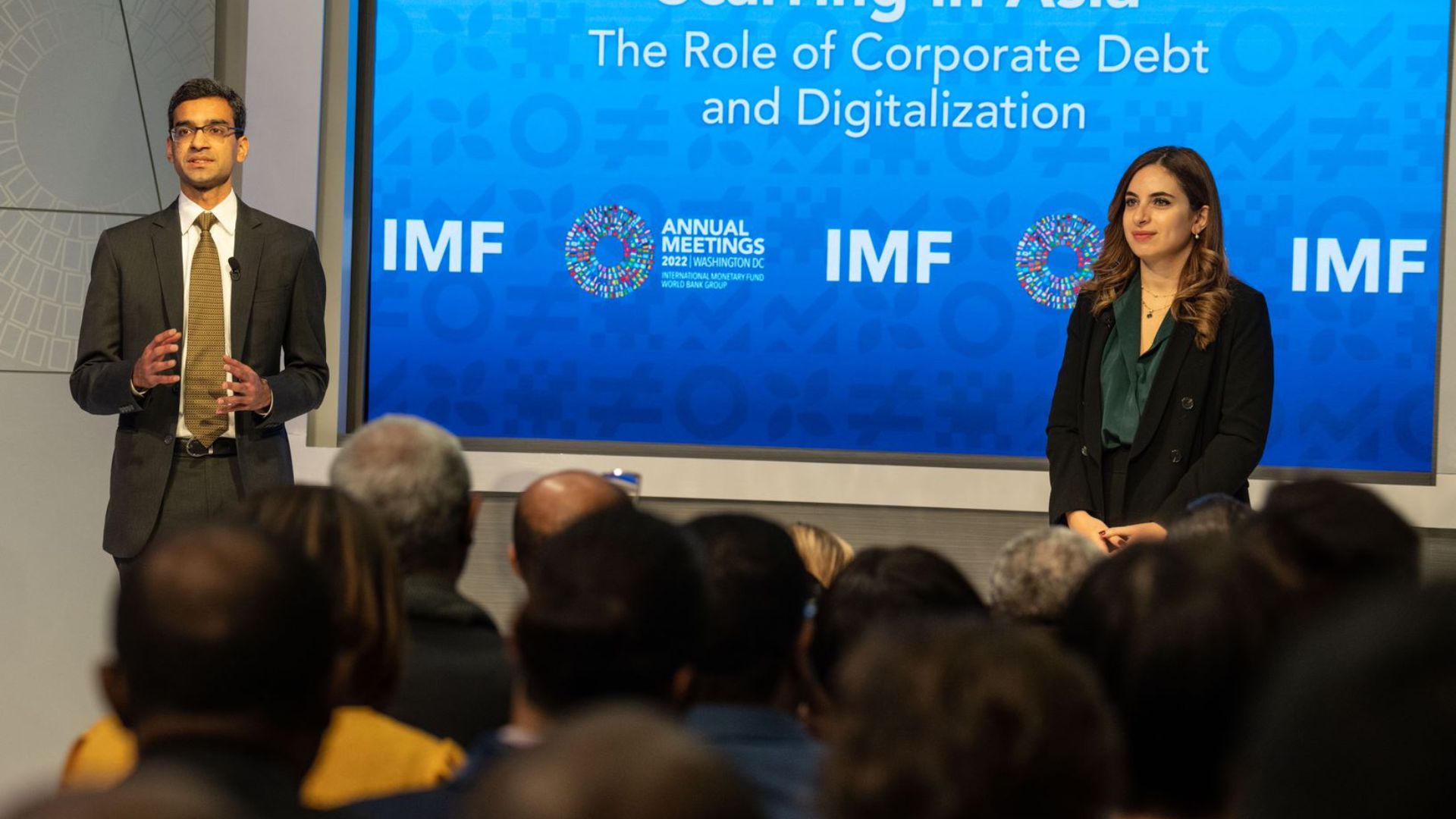
Asia Pacific's Pandemic Scarring
The Asia Pacific region may face more economic pain as IMF research shows significant long-term output losses due to lower investment, productivity, and employment, Fund economists Nour Tawk and Siddharth Kothari said in this Analytical Corner. A renewed push for structural reforms, however, could mitigate the scarring effects of the pandemic in the region. Policymakers should focus on tackling corporate debt, reducing education losses, and boosting digitalization.
Number of the Day
345
million
The lives and livelihoods of 345 million people are in immediate danger from acute food insecurity.
Learn more
BEHIND-THE-SCENES
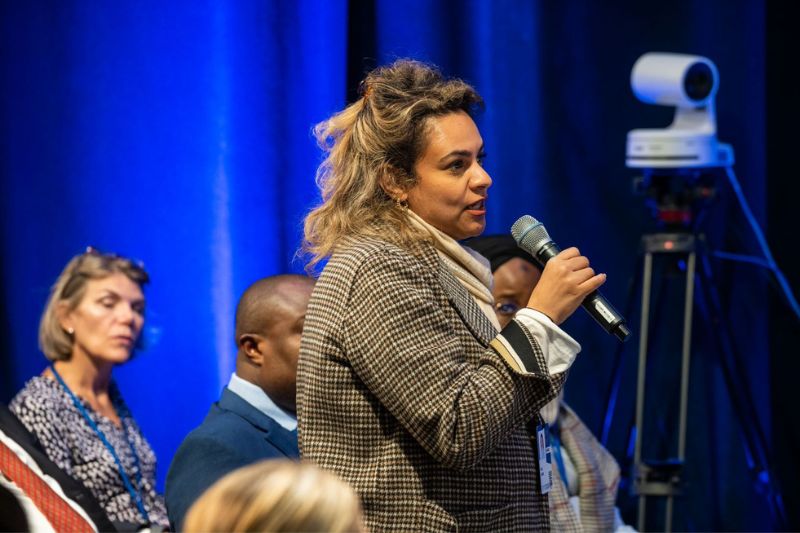
The audience participates actively IN the first in-person IMF Annual Meetings for three years.

THE MOROCCO PAVILLION SHOWCASES THE ECONOMIC SUCCESSES AND CULTURAL DIVERSITY, ONE YEAR AHEAD OF THE 2023 ANNUAL MEETINGS IN MARRAKECH.

Vanessa Nakate poses for the picture together with Rhoda Weeks-Brown, Director of the IMF's Legal Department, after her IMF Inspired event.
Upcoming Events
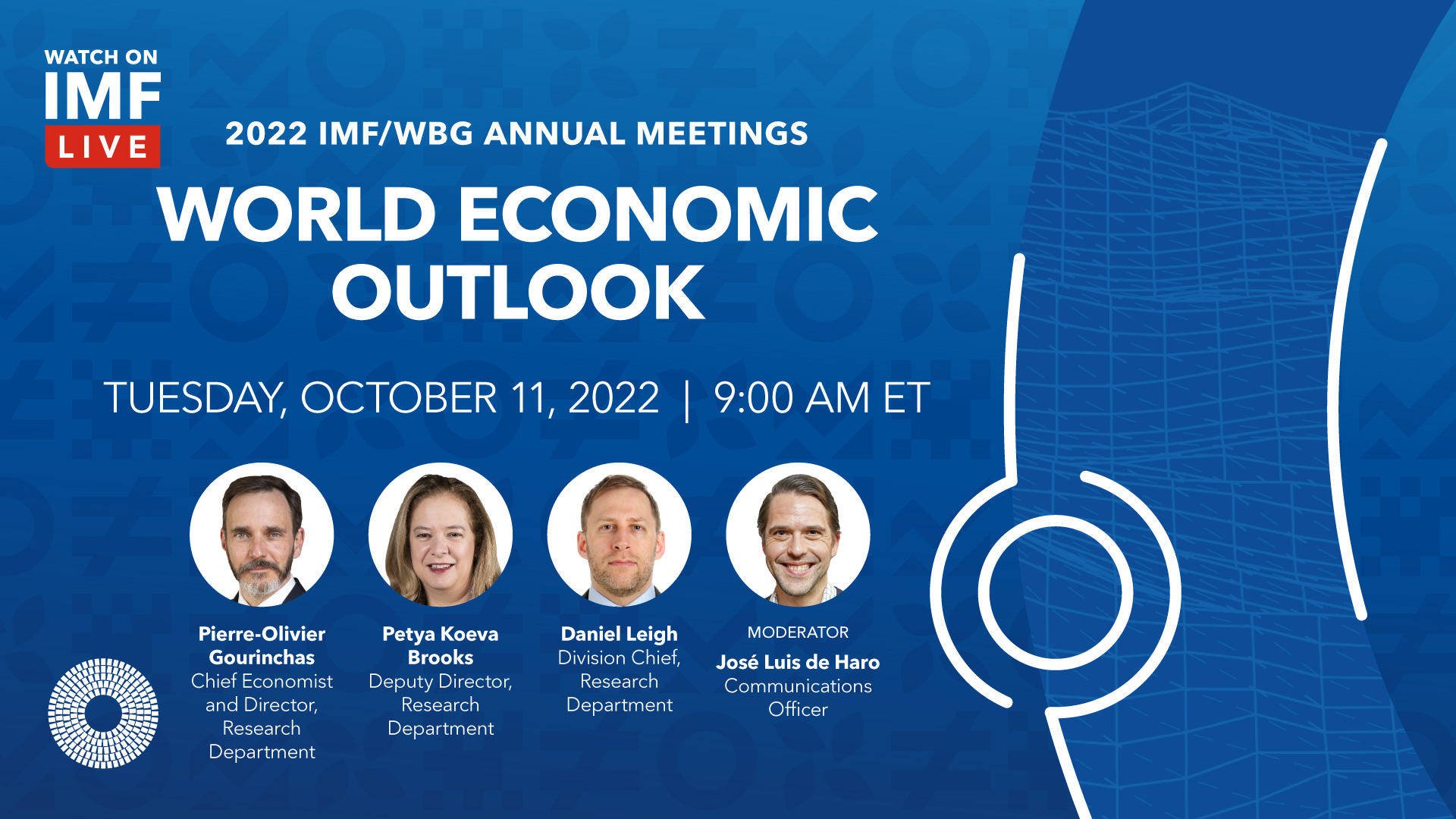
Press Briefing: World Economic Outlook
Presentation on the latest forecast for the global economy.
Event Details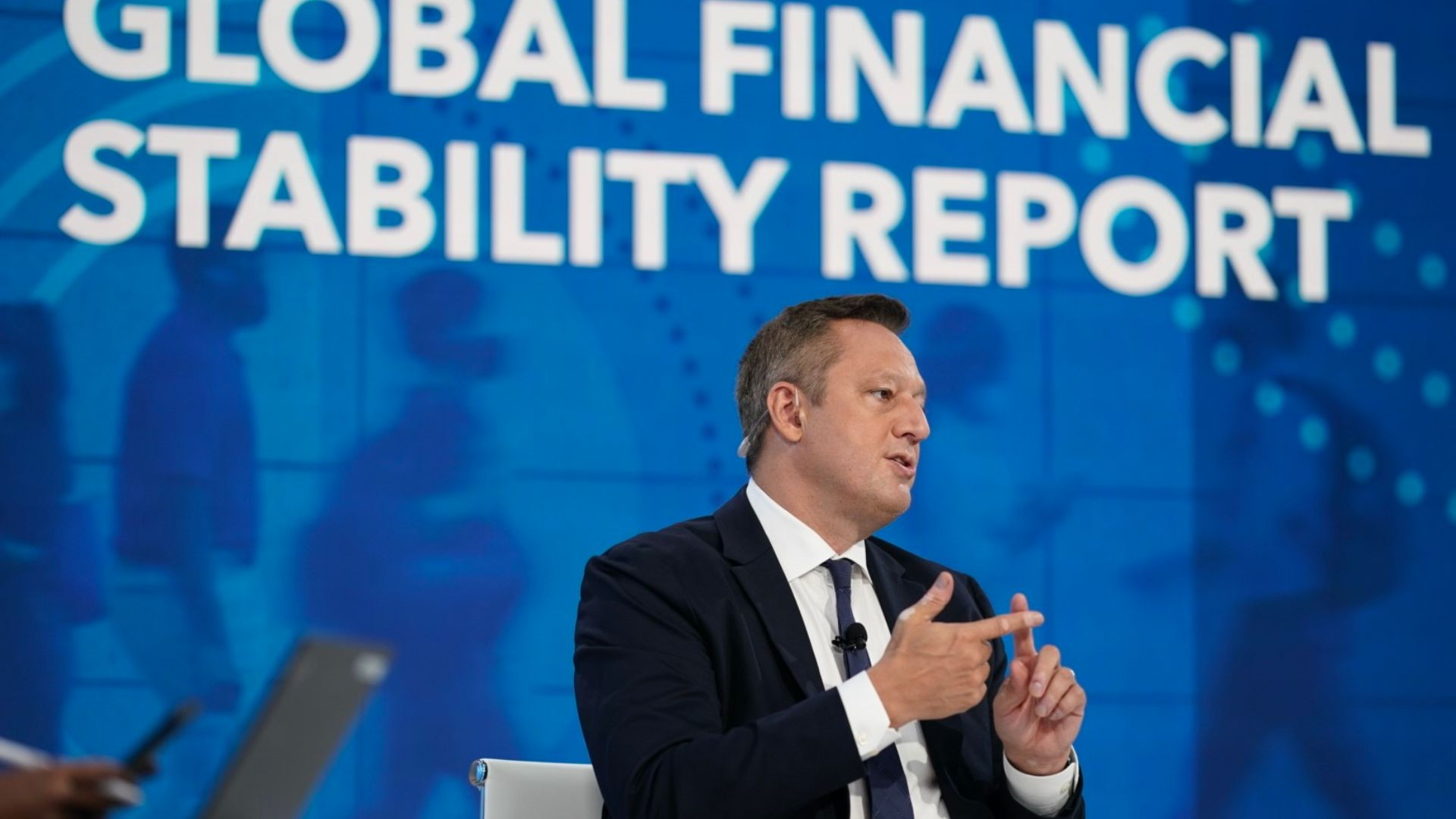
Press Briefing: Global Financial Stability Report
This press briefing will discuss the Global Financial Stability Report.
Event Details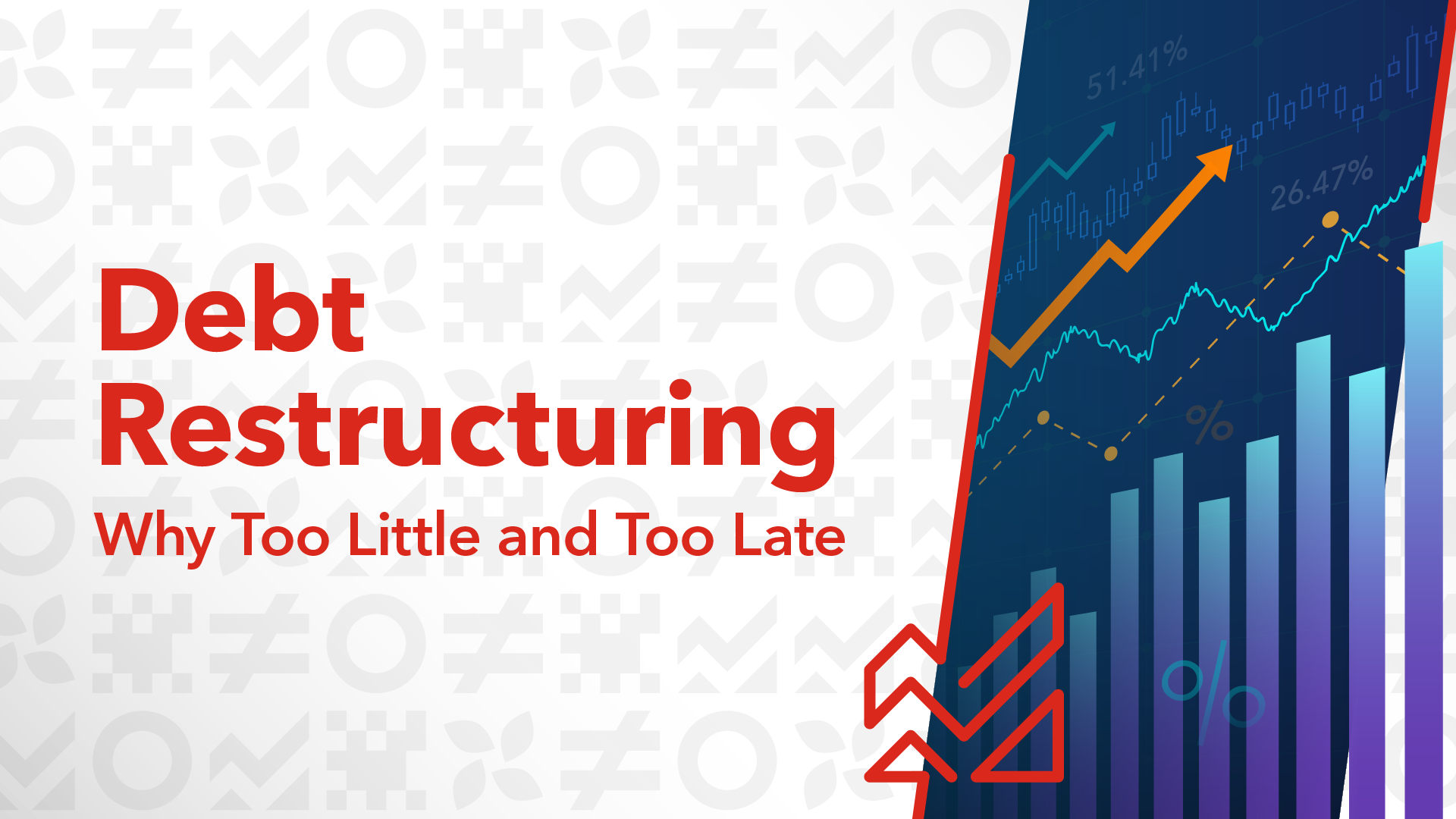
Debt Restructuring: Why Too Little and Too Late
Join us for a panel discussion to explore options for improving the functioning of debt restructuring mechanisms from a private sector perspective.
Event Details

